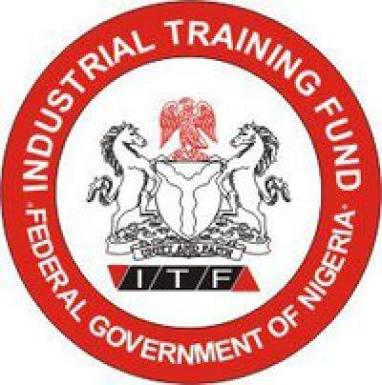The Nigerian Industrial Training Fund (ITF) was established in 1971.
The Industrial Training Fund Act (ITFA) came into effect on 8 October 1971. The purpose of the Act was to establish a Fund – The Industrial Training Fund (ITF) – to be utilized to promote and encourage the acquisition of skills in industry or commerce in Nigeria with a view to generating a pool of indigenous trained manpower sufficient to meet the needs of the economy.
ITF begin as a Parastatal “B” in 1971, headed by a Director, the ITF became a Parastatal “A” in 1981, with a Director-General as the Chief Executive under the aegis of the Ministry of Industry. The Fund has a 13 member Governing Council and operates with 10 Departments and 4 Units at the Headquarters, 33 Area Offices, 3 Skills Training Centres, and a Centre for Industrial Training Excellence.
ITF FUNCTIONS:
- Encouraging greater involvement of employers, particularly small employers, in the organization and development of training programmes and facilities including the establishment of Group Training Schemes and Centres in certain areas of economic activity;
- Building of training facilities of its own, in identified areas of national need;
- Organizing research and studies into training as a support to other activities of the Fund;
- Establishing uniform National Vocational Apprenticeship Training Scheme in the country;
- Seeking to harmonize ITF’s non-formal training programmes with the curricula of formal educational institutions;
- Bearing a proportion of the direct cost of on-the-job and off-the-job training of Nigerian employees.
EMPLOYER’S QUALIFICATION TO CONTRIBUTE
Minimum threshold for an employer to become liable for contribution under the Act has been reduced from 25 employees to a minimum of 5 employees or a turnover of N50 million and above per annum.
The required contribution is 1% of payroll to be paid by the prescribed date defined in respect of year 2011 to mean a date not later than 3 months from the date of commencement of the Act which is 3 September 2011; and in respect of every subsequent year, means a date not later than 1 April of the following year. “Payroll” has been defined to mean the sum total of all basic pay allowances and other entitlements payable within and outside Nigeria to any employee in an establishment, public or private. “Employees” means all persons whether or not they are Nigerians employed in any establishment in return for salary, wages or other consideration, and whether employed full-time or part-time and includes temporary employees who work for periods of not less than thirty days (previously 3 months in a year).
Organisations bidding or soliciting businesses from government and private entities are now required to show evidence of compliance with their statutory obligations with respect to payment of training contribution to the Fund. All regulatory agencies of the Federal Government are required to ensure compliance with this provision. Entities in the free trade zone requiring approval for expatriate quota and/or utilizing custom services in matters of export and import are to show proof of compliance with the Act.
VISION STATEMENT
To be the foremost Skills Training Development Organization in Nigeria and one of the best in the world.
MISSION STATEMENT
To set and regulate standards and offer direct training intervention in industrial and commercial skills training and development, using a corps of highly competent professional staff, modern techniques and technology.
REIMBURSEMENT AND GRANTS SCHEMES
The Reimbursement and Grants Scheme of the ITF was incepted in July, 1973. Under the Scheme, the Fund bears part of the cost of workers/employees training and further education by providing grants for courses undertaken.
Variation of the rate of contribution is now to be by order published in the Gazette by the Minister of Industry with the approval of the Federal Executive Council. Previously The Minister may, with the approval of the President by order published in the Federal gazette, vary the rate of contribution. The maximum refund which an employment can claim has now been reduced from 60% to 50% of the amount paid by such employer subject to the training programme of the employer being in accordance with the Fund’s reimbursement schemes. This goes against all expectations, one would have expected that with growing number of employers now required to contribute, the total fund available to the ITF should increase and therefore no justification for a reduction in percentage of contribution available as refunds to complying employers.
Penalty for failure by an employer to provide adequate (documented) training for its indigenous staff or to accept students for industrial attachment purposes or providing false returns or information is liable on conviction in the case of a body corporate to a fine of N500,000 (previously N5,000) for the first breach and N1,000,000 (previously N10,000) for each subsequent breach. In the case of the Chief Executive, Secretary or other principal officer of the company to a fine of N50,000 (previously N1,000) or two years imprisonment for a first breach and two years imprisonment without option of fine for each subsequent breach.

